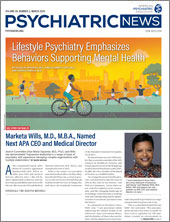La-la-la-la (release the stress)
La-la (release the love, forget the rest)
You won’t break my soul
You won’t break my soul
Beyoncé’s music was a gift. I heard the “Break My Soul” lyrics thousands of times in my car and often in my mind when I’d intentionally shut out the world. I sat gripping the steering wheel until my hands were almost numb. I closed my eyes to visualize the six-minute drive to work and the walk from the parking lot to my office at a secured federal government facility.
La-la-la-la (release ya anger)
La-la-la-la (release ya mind)
I drove. I parked and released my grip on the wheel. My hands rejoiced.
Got motivation (motivation)
I done found me a new foundation, yeah
You won’t break my soul.
Ten minutes passed. Left, right, left right. Each step was heavy, but I made it to the institution’s entryway where a familiar voice greeted me. He asked if everything was O.K. “Yes, thanks, running late. I had car trouble.” He responded, “I know a little about cars. What was the problem?” Without thinking I responded, “I didn’t want to start it.” He laughed. Unconsciously, I touched my face mask, an accessory protecting me from the pressure of pretending to smile. My legs were still heavy as I walked. At my office building, a patient greeted me. “Hello,” I said, and the smile was real.
On January 8, Antoinette “Bonnie” Candia-Bailey, M.D., died by suicide. She was a member of my sorority—Alpha Kappa Alpha. Based on public documents, Dr. Candia-Bailey reported experiencing a hostile work environment following her academic appointment in May 2023. She developed clinical depression and repeatedly sought relief without success. I did not know her personally, but her suicide was like a gut punch. I identified with her struggles to have the freedom to perform her professional duties in a supportive work environment.
On November 3, 2022, I reached a turning point. I had a moment when I literally couldn’t breathe. I vividly recall the intense warmth filling my chest, my lungs burning as I struggled to breathe, the light in the room dimming, and my shirt wet from tears and sticking to my chest. All the overt aggression and microaggressions were finally overwhelming me. Every effort I made to seek relief—even when I reported that the hostile behavior compromised patient care—was dismissed. I felt helpless. Over the years, the stress has caused my weight to fluctuate, a hypertensive crisis, hair loss, insomnia, and anhedonia. My lifelines have included my children, friends, colleagues, and advocacy work.
I have long identified as a patient advocate, yet I could not change my own environment. I was challenged with staying in this role to continue the clinical work that I love, standing my ground to preserve my retirement benefits, or walking away. Walking away felt like giving a victory to my oppressors, so I stayed and even sought an administrative position to gain more authority to protect my patients and my own health. Thankfully, I feel that I achieved the former, but I often wonder what irreversible harm to my health is accumulating over time.
Job stress issues are linked to psychological disorders that may result in an elevated suicide risk. Physicians have one of the highest rates of suicide of any profession; the rate for male physicians is up to 40% higher and for female physicians up to 130% higher than the general population, according to a 2005 report in NEJM. And it’s not just physicians—a 2023 study in PLOS One found that Black women in the highest income strata had a 20% increase in the odds of suicide/self-inflicted injury compared with White women in the lowest socioeconomic strata.
Prior to writing this article, I worried that my professional reputation would be negatively impacted by my disclosure. I worried that peers would be less likely to perceive me as an effective advocate, and my professional goals would be limited. I realized my fears were rooted in stigma. Stigma, demoralization, systemic racism, and depression may have serious and even fatal outcomes.
Constance E. Dunlap, M.D., a Black woman psychiatrist and psychotherapist and a member of APA’s Assembly, recently commented, “Black people often wish they could remove themselves from charged situations involving race. However, we often don’t feel we have the luxury of removing ourselves. While experiencing microaggression and even overt aggression and hostility, we must remain calm and composed and maintain an even affect while managing these situations.”
For those who experience race-based harassment or bullying in the workplace, recognize that being silent while being dehumanized, marginalized, and minimized over long periods of time takes a toll on your physical and mental health. Take time to seek the support and motivation to build a new foundation because work should not break your soul.
For those who may witness workplace harassment or support colleagues experiencing such harassment, Dante King, a legal expert and researcher concerning matters regarding race and racism, recommends self-query: What is your health care organization doing to take an inventory of how Black people are treated? Are there Black people in your organization or community at risk for self-harm or suicide due to workplace harassment or bullying? Are you taking actions to create an equitable and safe workplace for yourself and your co-workers? ■
Editor’s note: APA members are invited to submit personal stories for this column that taught them important lessons, gave them meaningful insights, changed their lives—in short, touched them in some way from which others might learn. Stories can be related to personal or professional experiences. If you are interested in sharing such a story, please send them to [email protected]. 
